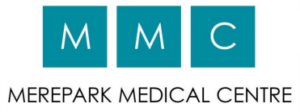Atopic eczema (atopic dermatitis) is the most common form of eczema.
Atopic eczema causes the skin to become itchy, dry, cracked, sore and red. Some people only have small patches of dry skin, but others may experience widespread red, inflamed skin all over the body.
Although atopic eczema can affect any part of the body, it most often affects the hands, insides of the elbows, backs of the knees and the face and scalp in children.
Self Care Techniques
You can help to improve your eczema by:
- Avoiding scratching
- Avoiding temperature extremes
- Wearing non-irritant clothes
- Avoiding using fabric softeners
- Avoiding soap
- Using moisturisers to help keep the skin hydrated
Visit your Pharmacist
You can visit your Pharmacist who can recommend creams and antihistamines to help minimise the itching.
When to see your GP
See your GP if you have symptoms of atopic eczema. They’ll usually be able to diagnose atopic eczema by looking at your skin and asking questions.
Typically, to be diagnosed with atopic eczema you should have had an itchy skin condition in the last 12 months and three or more of the following:
- visibly irritated red skin in the creases of your skin – such as the insides of your elbows or behind your knees (or on the cheeks, outsides of elbows, or fronts of the knees in children aged 18 months or under) at the time of examination by a health professional
- a history of skin irritation occurring in the same areas mentioned above
- generally dry skin in the last 12 months
- a history of asthma or hay fever– children under four must have an immediate relative, such as a parent, brother or sister, who has one of these conditions
- the condition started before the age of two (this does not apply to children under the age of four).
